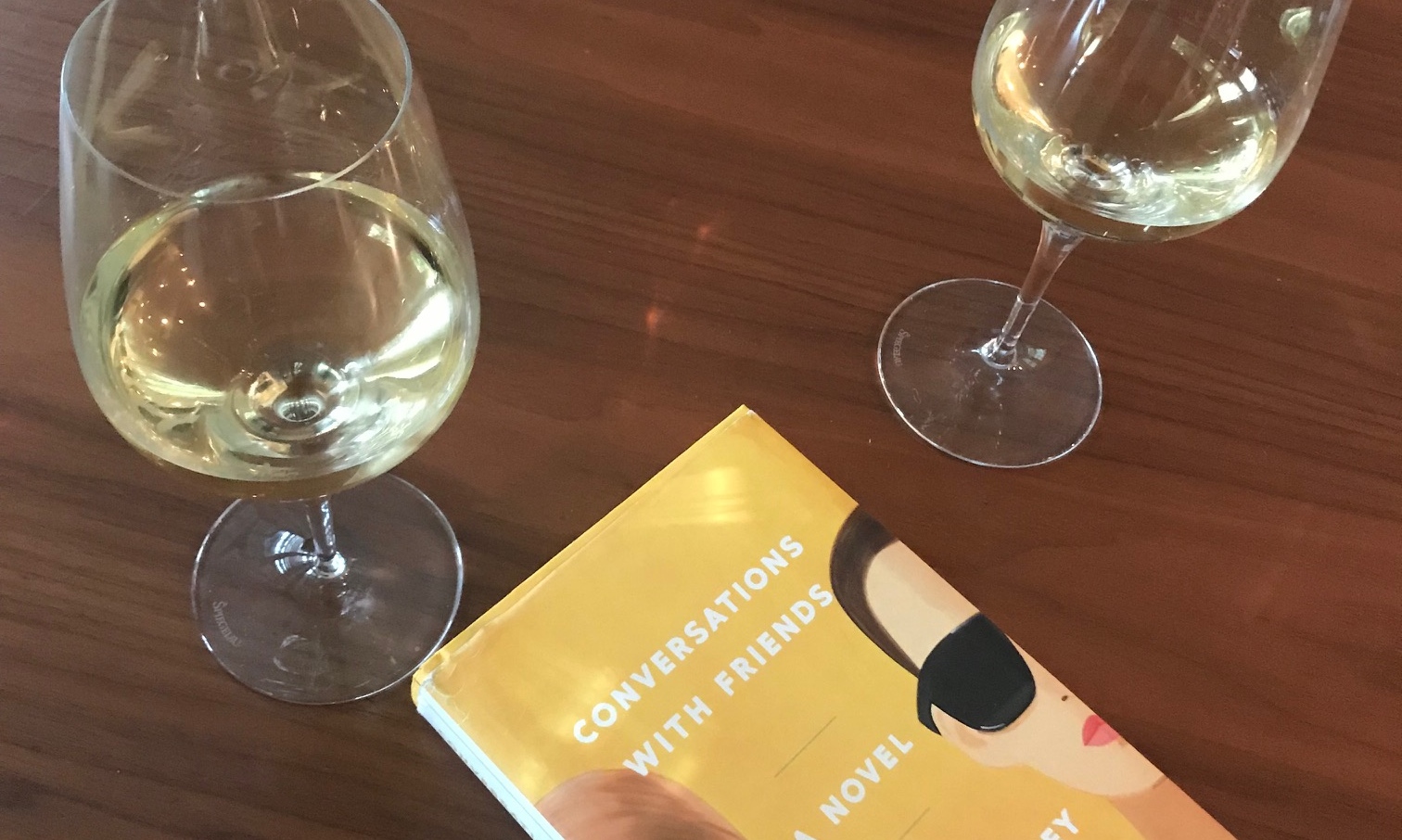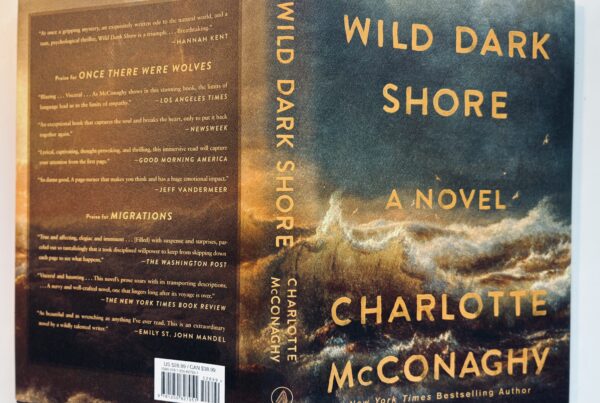a bookclique pick by Laura Dickerman
Irish writer Sally Rooney, only 26 years old, a former top European debater from Trinity College in Dublin, wrote her first novel, Conversations with Friends, in three months. It is a quick-moving, fascinating study of two couples, Frances and Bobbi, young women who are entwined romantically, emotionally, and intellectually; and Melissa and Nick, who are older, married, successful and established in the arts community.
The story of how the couples move together and apart, how they love and hurt one another, is told primarily in the first person by Frances, a brilliant, beautiful university student and poet. Rooney’s characters communicate passionately over bottles of wine at dinner parties, brunch in coffee shops, long emails, and late-night Instant Messages. They discuss political theory, cultural relativism, white privilege, or the patriarchy, but when it comes to examining their own hearts and motivations, they are often realistically tongue-tied and confused. Frances, in particular, who embarks on an intense affair with the gorgeous, passive Nick, is a mass of contradictions: her painful insecurity about her own talent, attractiveness, and economic class is often misconstrued as coldness and ironical distance.
One of Rooney’s many admirable talents is her ability to layer complex, often contradicting impressions and desires so that we see how the characters view themselves, how others view them, and how rampantly these incredibly intelligent, talkative people miscommunicate. The contrast between self-awareness and self-deception is evident in all the characters, but 21- year-old Frances’s physical and emotional fragility and the intensity of her inner life ring especially true:
“I was excited that we shared an experience I found so personal, and I quickly said: people find me cold and lacking in fun.
Really? he said. You always seemed charming to me.
I was gripped by a sudden and overwhelming urge to say, I love you, Nick. It wasn’t a bad feeling, specifically; it was slightly amusing and crazy, like when you stand up from your chair and suddenly realize how drunk you are. But it was true. I was in love with him.
I want that coat, I said.”
Frances can be difficult and frustrating, but she is never difficult or frustrating to read about, and Rooney’s mastery is in simultaneously revealing the pretensions and delusions of the characters while remaining sympathetic to them. She writes engagingly, confidently, and perceptively about education, class, family, sex, friendship, and love. Conversations with Friends is smart and sexy and honest with a messy, unresolved ending that kept me thinking about the characters long after I had finished reading it.




